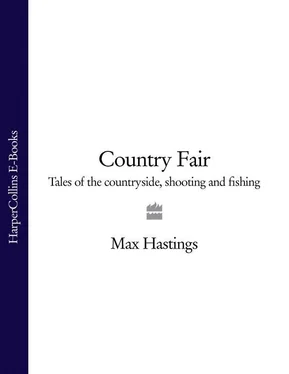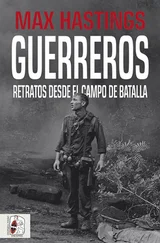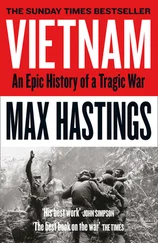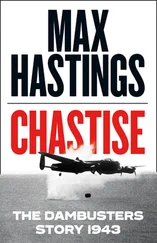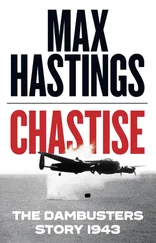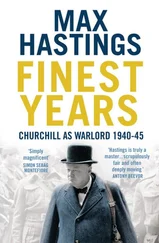In my twenties I filled our home with sporting prints and later watercolours and paintings, as had my father. I recently heard Malcolm Innes, a veteran of the trade, say that sales of sporting art – at the popular end of the market anyway – are languishing. Malcolm suggests that this is because the young are simply not buying pictures of the kind we all loved: Thorburn and J.C. Harrison prints, Balfour-Browne stalking sketches. He suspects – and my instinct is that he is right – that while the new generation likes field sports well enough, few twenty-somethings embrace them as consuming passions. Perhaps this is partly because shooting is now almost prohibitively expensive and hard to come by for their generation. When I was twenty-two, the owners of a girls’ school near our home in Hampshire let me roam its woods, potting the odd pheasant. I can’t imagine anyone these days giving a young man with a gun that sort of licence. In the south of England rough shooting has become almost unobtainable. Yet we should recognise that driven shooting is a bastard extravagance for relatively rich men. Walking-up game with dog and gun is, and always should be, the core of sport.
But then I think again of that eager thirty-something-year-old I met last summer, who couldn’t sleep for his excitement at the prospect of the morrow on the moor. The passion persists among some of the young. Our job – the responsibility of the not-so-young – is to see that the next generation is given the opportunities to keep alive the sporting heritage. George Eliot wrote: ‘If youth is the season of hope, it is often so only in the sense that our elders are hopeful about us.’ Yet the young must be given the chance to experience the magic and catch the bug, to become steeped in the enthusiasm we have known.
Children’s shoots may sometimes be alarming experiences, but they are bedrock for the future. In our family we continue to give an annual outing that name, though all those involved are now in their twenties. My son and daughter ask three or four friends apiece to a day which I take for them on a nearby estate. Roughly the same team has turned up every year for the past six or seven. Port – which none of my own age-group seems to drink at all – is consumed in prodigious quantities at dinner the night before the action. Indeed, the general alcohol intake would have commanded respect at a Roman bacchanalia, though I don’t mind when the young are not driving anywhere. Some subsequently sleep in beds, others doss wherever they can find a corner of the house – we never ask.
Marshalling the guns next morning, one might suppose that they had regressed to a common age of about six. Waking and feeding them, ensuring that they are properly equipped, demands a large nursery staff, rather than just me and a frying pan. Each must be quizzed before setting out, to ensure that he or she has Wellingtons, gloves, jackets, firearms. I warned two of the party to make sure they put plenty of 20-bore cartridges in the cars. We arrived at the shooting lodge to find that they had brought only a case of 12s. How do they get to the cinema on the right day, never mind earn livings?
I carry a radio rather than a gun at these affairs, taking my orders from the keeper, who fortunately knows us well and possesses a keen sense of humour. I lay on the safety warnings with special energy. A few years ago, one twenty-year-old gun – from a shooting family – terrified me. I saw him twice try to shoot a pheasant almost head-high in front before I reached his peg and lacerated him. He was not on the list this year, thank goodness. The first two drives were memorable for producing the worst exhibition of shooting I can remember since the guns were about twelve. On a sharp, cold day with a touch of wind, the partridges flew like smoke. A barrage of fire poured skywards. My dog sprang expectantly at each detonation, hoping for something to retrieve. Not a chance, ducky.
I stood behind my daughter. At the age of twenty-eight, she still cherishes a delusion that she can pick up a gun once a year, having spurned all offers of an outing at the shooting school, and expect birds to fall down. ‘You’re six feet behind every bloody one!’ I exclaimed, relishing the knowledge that nobody present had seen me shoot lately. ‘Chill out, Daddy,’ said the daughter scathingly. She was raising the gun so hesitantly that the bird was twenty yards behind the peg before she pressed a trigger. Then she stood contemplating its undamaged passage into the distance, expecting it to expire as an act of will, instead of reloading for the next flush. The boys, if one can still call them that, were throwing prodigious quantities of lead into the sky for not much better results.
After the second drive, the keeper announced with relish over the radio that 330 shots had been fired. Thirty-seven birds had been picked up. I pressed the handset and demanded, in front of the team, whether he had seen a worse showing this season. ‘No,’ he said decisively, amid a howl of mirth from the guns. In fairness, most of the boys get no more shooting than I did at their age, which was not a lot. But some do have practice. One of their daddies, indeed, features on best-shots-in-Britain lists. I said that they seemed to be hitting less than last year. ‘It was the port,’ they replied, attacking mid-morning sloe gin, soup and sausages as if they had not seen a square meal in a month.
The great thing about being boss of a day like this is that one can profess omniscience, in the absence of sceptics who know my own form. ‘By now,’ I told them confidently after the third drive, ‘a team of Chelsea Pensioners armed with walking sticks could have two hundred in the bag.’ One of our beaters had a seizure at the spectacle of a female gun, an old friend of my daughter and not a bad shot, trying to finish off a wounded pheasant by clubbing it to death with her gun butt. She suffered girlish scruples not about shooting it, but about wringing its neck or even whacking it against a tree. I told her that she should adopt my father’s favoured method, crushing its skull in her teeth. She looked like one of those young ladies in Victorian novels who came over all funny when somebody mentioned the word manure.
For us control freaks, the hardest part of entertaining the young alongside one’s own offspring is to keep one’s mouth shut. The spectacle of my son pouring himself a lunchtime gin of a size that would have impressed our dear late Queen Mother caused me to retire into a corner and gnash my teeth before rejoining the throng. I have given up knowing what does, or does not, constitute reasonable behaviour in the next generation. And in my heart, I was pleased with the son for shooting quite decently. A couple of days earlier, standing on the next peg at another shoot, he had wiped my eye at quite a tall pheasant. Most fathers like to see this happen, and I am no exception.
At the drive after lunch, the team pulled itself together and shot a bit better, though the keeper murmured to me that the birds were so wet he thought the dogs had caught several. The ‘children’ had adored every second of it. They departed leaving behind the usual random assortment of property. One year, a boy left a gun case – quite a good one. Despite ringing round the usual suspects, no one claimed it, so it has joined the Hastings equipment collection. I would murder any child of mine who left a gun case on the other side of England, but maybe some families have so much sporting kit that they don’t miss trifles.
Every year I ask myself whether I can afford to go on entertaining the children’s friends in this way. Nobody did it for me. But nowadays we all know that if we don’t help them to get started, there is no way they can make it on their own. I guess I shall go on forking out as long as the bank manager allows. I see our children’s shoot as a minuscule contribution to ensuring that the marvellous ritual of field sports survives through the next generation, and the new century.
Читать дальше
